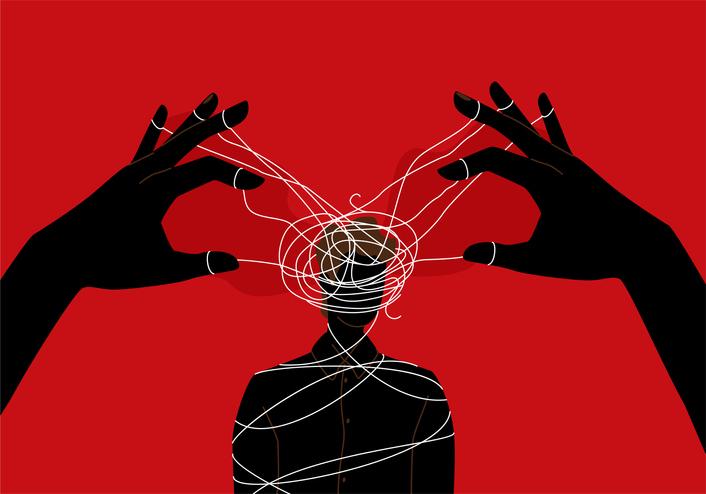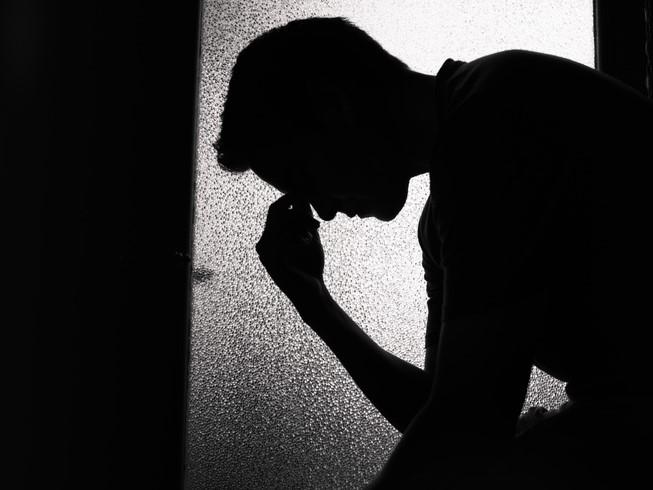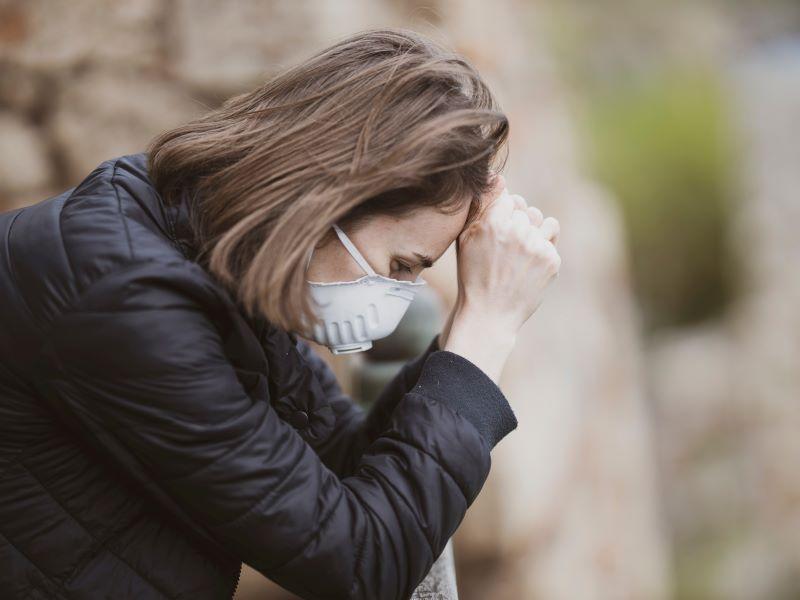
I’m finally ready to admit that I’m an academic who suffers from depression
I’m opening up because those of us hounded by mental health issues should not have to add fear of job loss and stigmatisation to our list of concerns, says James Derounian

I suffer periodic bouts of anxiety and depression, three or four times a year, and they each typically last for 20 to 30 days. You might be surprised – or not – to learn that it has taken me 65 years to just come out with it. When I was still a full-time lecturer, I published an anonymous piece about it for The Guardian newspaper. At that time, I did not feel confident in putting my name to it.
: “Mental health and higher education: ‘I won’t let depression hold back my academic career’.” And it hasn’t. But it does regularly make home and work life bleak, tough, a daily slog – and particularly difficult for my wife. Of course, everyone’s experience of mental illness will be different. The medics tell me I have mild to medium symptoms, normally kept in check by medication. I agonised over taking tablets, but I now look at it this way: if I had a physical illness – diabetes, say – I wouldn’t think twice about taking the meds.
- The four-day week in higher education: can we make it work?
- You’re not alone: tips to help academics avoid social isolation
- Adaptability is different from resilience – and here’s how to nurture it
So what happens? On a regular basis, a trap door opens and I fall into a gloom. It seems to be stress and a feeling that everything is spiralling out of control that triggers this drop. When I fall, I become racked with worry, insecurity, dread; I suffer a rattling heart rate, sweating and an overriding sense of impending doom, like I’m about to explode or disintegrate. It’s very frightening. And my National Teaching Fellowship and successful career of more than 40 years evaporate. It’s not Dr Jekyll and Mr Hyde; more Dr WhiteDog becomes Dr BlackDog. The latter, “black dog”, was Churchill’s famous description of his depressive episodes – and he didn’t do too badly.
We know – and – that approximately “one in four people in the UK will experience a mental health problem each year”. This statistic covers, as examples, disorders including bipolar, phobias and depression. It’s also worth remembering that this is not a minority experience, but widespread: for 2017-18 show that 15.4 million working days were lost to work-related stress, depression or anxiety that year. Furthermore, women “in full-time employment are to have a common mental health problem as full-time employed men (19.8 per cent vs 10.9 per cent)”.
The World Health Organisation has a message for HEIs and managers: poor “working environments – including discrimination and inequality, excessive workloads, low job control and job insecurity – pose a risk to mental health”.
So why have I chosen this moment to open up? Strangely, perhaps, I was listening to a rather saccharine Radio 4 programme, in which a woman was talking about disability. She was basically saying that she felt impelled to put it out there with the intent to inform and promote better conditions for others. That’s my hope in Campus publishing this piece. Those hounded by the black dog – many of whom will experience much more difficult symptoms than me – deserve better. We should not have to add fear of job loss, stigma or termination of career progression to our list of concerns because of something that afflicts us through no fault of our own.
I urge the UK government, universities and colleges, staff and students to explicitly and properly support those of us who suffer physical and/or mental challenges and conditions. I have painted a picture of what it can feel like for a teaching academic to experience mental illness. Recognition is base camp one, but what can sufferers and non-sufferers alike do to alleviate the burden?
Looking at the practicalities, individuals can endeavour to exercise self-care. Since the pandemic, the mix of office and home working can offer possibilities for reducing stress. Similarly, so long as the job is well done, I have found that exercise, decent diet and rest can aid you in managing and recovering from the blues.
For academic managers and HR colleagues, there needs to be increased openness in accepting and enabling those experiencing mental illness to function more comfortably, rather than seeing them as a problem they have to make disappear. This could be by managers authorising home working or online teaching delivery when a colleague is unwell. Similarly, just as students experiencing difficulty can get extensions to complete assignments, unwell lecturers could be given additional time to turn around marking, which can be a major source of stress for academics. It would also be helpful for staff to be able to access a university’s confidential counselling service and undertake sessions away from campus.
Colleagues can help by looking out for each other more and practising collegiality by being trusted listeners and encouragers. As part of this, managers and colleagues can offer validation by simply acknowledging and saying “thank you” for work well done. The term “human resources” does, after all, lead one to expect humanity and the cherishing of an institution’s staffing resources. It would be a start to see staff well-being treated in much the same way that HEI and government policy are prioritising student well-being.
Other supportive avenues are available. You can try online , GP support and/or University and College Union (UCU) support for . There are also more specific resources, such as the NHS’s , which offers online resources and counsellor support for various sleep disorders, and . Then there are charities such as and specialist healthcare companies such as , offering support that must be paid for. There are also directories of helpful agencies; for example, an A-Z of agencies provided by .
My final point is that I am not defined by my depression and anxiety; it is just part of the colour palette that makes me who I am. Furthermore, such difficulties can also be seen in a positive light, in that they can enable us to be more sensitive and empathetic towards the frailties and suffering of others – whether friends, acquaintances, students or colleagues.
James Derounian lectures on community governance. He is a national teaching fellow and a visiting professor at the University of Bolton, UK.
If you found this interesting and want advice and insight from academics and university staff delivered direct to your inbox each week, .


